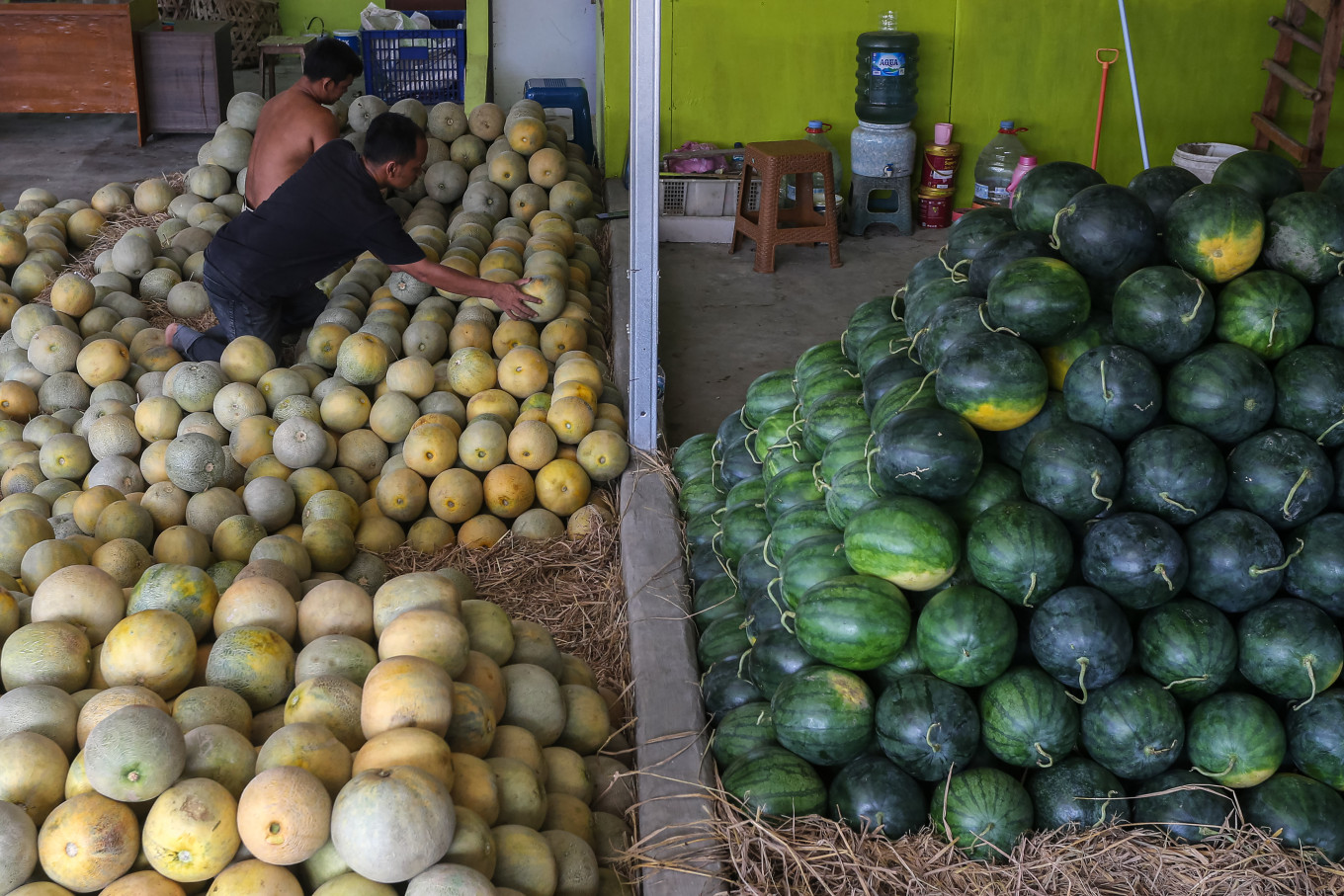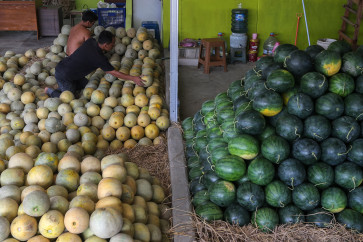Popular Reads
Top Results
Can't find what you're looking for?
View all search resultsPopular Reads
Top Results
Can't find what you're looking for?
View all search resultsFood irradiation: A game changer for food security, inflation stability
In Indonesia, a country where nearly a third of harvested food spoils before reaching consumers, keeping food fresh longer is not simply a safety matter, it is an economic necessity.
Change text size
Gift Premium Articles
to Anyone
M
anaging inflation in Indonesia requires a rather unique approach, as shocks frequently occur on the supply side, particularly in food inflation.
The main source of volatile food inflation pressure comes from disruptions in supply within food-producing regions, often due to pest outbreaks or weather disturbances. As a result, food inflation in Indonesia often spreads from one region to another because not all areas are self-sufficient in food production and must rely on supplies from other regions.
Moreover, food transported from production centers to destination areas takes time, often leading to quality deterioration. Innovations have been introduced, ranging from adjustments in cropping patterns to strengthening logistics systems, yet these efforts have not been able to contain food inflation, which remains highly volatile over time.
One largely overlooked but promising innovation is food irradiation, a process that uses controlled gamma radiation from Cobalt-60 isotopes to eliminate bacteria, fungi and insects without leaving any trace of radiation in the food.
The method, endorsed by the World Health Organization (WHO) and the Food and Agriculture Organization (FAO), has been safely applied for decades in Japan, the United States, Thailand, Malaysia and Vietnam. It works much like pasteurization but without heat.
The treatment penetrates food products, destroying microorganisms while maintaining taste, texture and nutritional value. For Indonesia’s perishable commodities, such as mangoes, papayas, spices, seafood and beef, irradiation can extend shelf life by two to three times, allowing goods to move safely across the archipelago’s long and fragmented logistics chains.
In Indonesia, a country where nearly a third of harvested food spoils before reaching consumers, keeping food fresh longer is not simply a safety matter; it is an economic necessity.



















